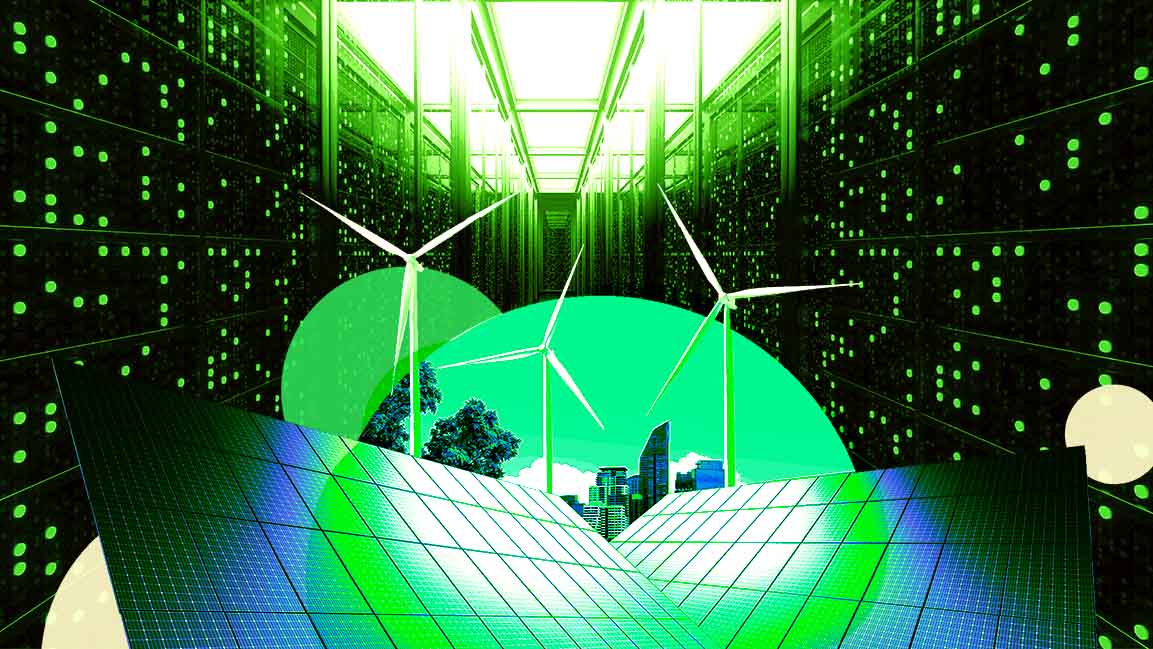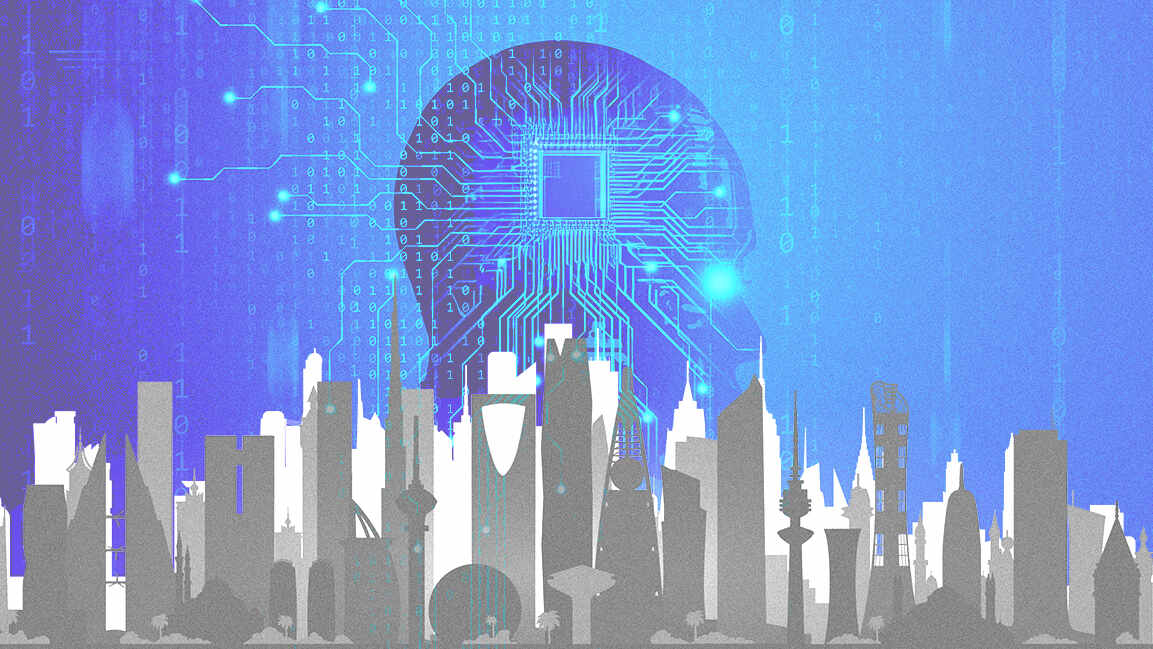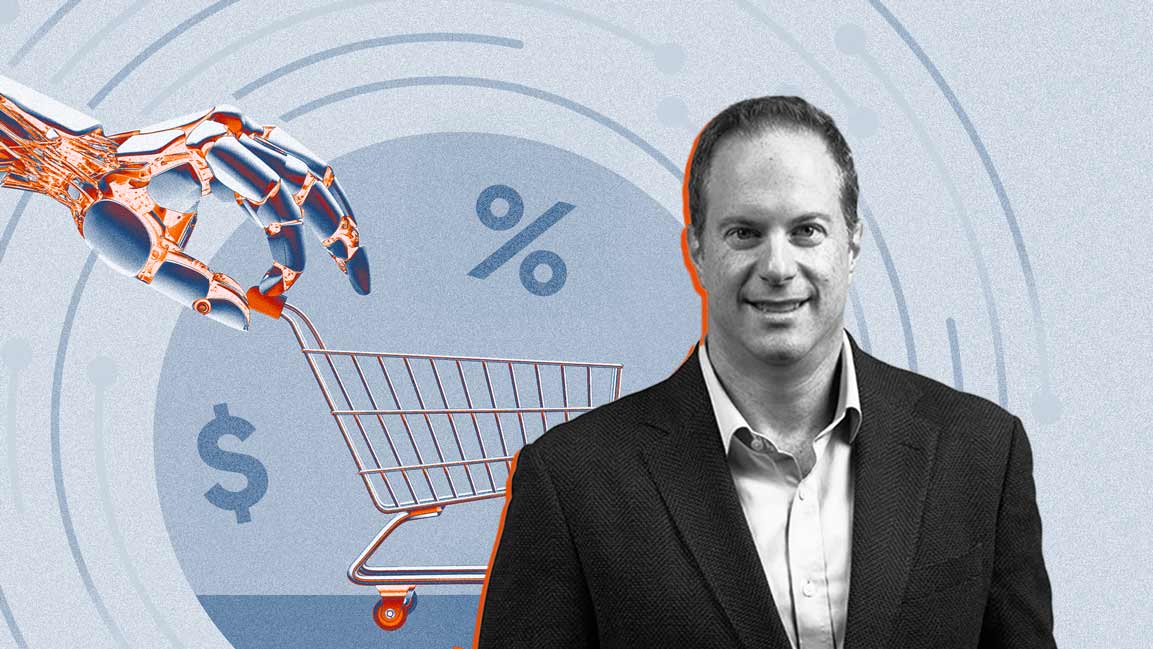This is what happens when ESG strategies join forces with data centers that power AI
As global demand for computing power continues to skyrocket, so does the carbon toll of data centers. Here’s how sustainable data centers could mitigate a data-driven climate crisis.

As the digital age sets and AI becomes the new norm, our reliance on technology and data-driven solutions has compounded dramatically. Data centers have become the backbone of modern digital infrastructure and determine the future of compute.
However, these facilities are known to be energy hogs, with a growing appetite for energy to fuel global compute requirements. Though intricate in their workings, data centers across the globe account for significant carbon footprints.
Sustainability has become a critical focus within the tech industry to address this urgent challenge without hampering the pace of data. Khazna Data Centers, alongside global energy consultants like Tenet, is pioneering the integration of sustainable practices in its operations. Elisabetta Baronio, Head of ESG at Khazna Data Centers, and Alexis Issaharoff, Board Director at Tenet, shared their perspectives on how the data center sector is expanding sustainably in the region.
WATCH THE FULL VIDEO HERE
KHAZNA’S COMMITMENT TO SUSTAINABILITY
Elisabetta Baronio, who leads Khazna’s sustainability efforts, underscored energy efficiency as a key component in Khazna’s green strategy. Khazna’s approach to sustainability involves embedding best practices across the entire lifecycle of its data centers—from design and construction to operation. “We are really working to ensure that we are doing it in the most responsible way possible,” said Baronio.
A major focus for Khazna is energy efficiency, and the company uses the Power Usage Effectiveness (PUE) metric to track how efficiently its data centers use energy. With PUE scores as low as 1.4, Khazna has made significant strides in this area, especially in a region with extreme climates. “In a region with a harsh climate, achieving PUE scores under 1.4 is a great achievement,” Baronio added. This efficiency is built into the design from the start, ensuring that each part of the data center uses as little energy as possible.
In addition to energy efficiency, Khazna integrates principles of the circular economy by reducing waste and employing modular designs. “There are many things we are doing to look at sustainability comprehensively,” Baronio said, highlighting that their data centers are designed to be flexible and adaptable to the changing needs of emerging technologies like AI.
EMBRACING RENEWABLE ENERGY AT KHAZNA
Khazna is also making significant strides in harnessing renewable energy, particularly solar power. Baronio explained, “We are really starting to engage in long-term conversations with energy players in different markets to ensure our data centers run on renewable energy.” In regions like Abu Dhabi, Khazna has installed a 7-megawatt solar park to directly supply power to one of its new facilities.
Beyond solar, Khazna is exploring other renewable sources of energy in regions with abundant resources. For instance, in Kenya, Khazna is tapping into geothermal energy to power future data centers. “We are tapping into geothermal energy to ensure that the data center will run 100% on renewable energy,” Baronio stated, emphasizing how Khazna utilizes locally available renewable resources to draft sustainable solutions across the MENA region.
However, Baronio noted that relying solely on renewable energy sources presents its own challenges. “Solar is not continuous,” she explained. “That’s why data centers can’t rely on just one source of energy.” To address this, Khazna proposed a combination of energy sources, such as batteries and diesel generators, as backup systems to ensure a constant energy supply. These systems are critical for providing uninterrupted service, even when solar energy is not available.
HOW TENET INTRODUCES SUSTAINABILITY TO THE DATA CENTER SECTOR
Alexis Issaharoff from Tenet provided a broader perspective on how global energy consultants help the data center sector achieve sustainability goals. Tenet focuses on optimizing energy consumption, transitioning to renewable sources, and implementing energy-efficient cooling technologies. “The best practices we learn in one market can be applied to new projects in other regions,” Issaharoff said. “You can take that knowledge and pour it into new projects.”
Issaharoff also highlighted the importance of storage technologies, such as batteries and hydrogen, which are becoming more efficient and cost-effective. “Energy storage is critical to ensuring that energy generated during peak solar hours is available when needed,” he noted. These technologies, combined with renewable energy sources, are helping data centers reduce their reliance on fossil fuels.
Tenet also assists in assessing climate risks and biodiversity at new sites to ensure sustainability is integrated from the outset. “It’s critical to identify short-term measures that create immediate impact,” Issaharoff added. These measures include installing solar panels or revising energy monitoring systems to enhance energy savings.
OVERCOMING ESG CHALLENGES IN DATA CENTERS
Integrating sustainability into data centers presents several challenges. Baronio acknowledged that adapting existing infrastructure to meet new demands, such as those driven by AI, can be difficult. “We are building the plane while flying,” she said, emphasizing that innovation is essential even while the industry continues to navigate these changes. Khazna addresses this by designing data centers that can be easily retrofitted to accommodate new technologies.
In addition to technical challenges, Khazna faces difficulties related to energy availability and extreme temperatures in the region. “The energy availability is a huge challenge,” Baronio remarked, stressing the importance of forging strong partnerships with energy providers to ensure a steady and sustainable energy supply.
WHAT SUSTAINABLE DATA CENTERS COULD LOOK LIKE IN THE REGION
Looking ahead, Issaharoff is confident that the data center industry will continue to evolve to meet global ESG standards. “What you bring from other projects and ecosystems will add value to your work in the future,” he said, underscoring the importance of sharing best practices and lessons learned.
As Khazna and Tenet’s efforts show, sustainability is not just a trend but a fundamental shift in how data centers operate. By focusing on energy efficiency, renewable energy, and innovative design, these companies are setting a new standard for the industry, proving that sustainable data centers are not only possible but essential for the future.








































